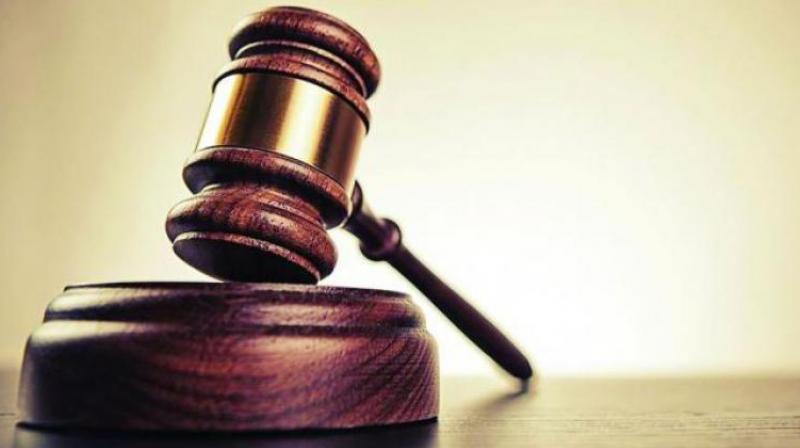On the contrary: Rajat Gupta - Big fish or pawn?
Having a good reputation doesn\'t give you a free pass to violate the law as the chief prosecutor claimed at the trial.

As the years roll by, it is striking to note how little public morality has changed. Back then stock market gossip was suffused with a sneaking admiration for Harshad Mehta. Cut to April 2019 and the massive pile-up of luxury cars outside the Leela Palace bore eloquent testimony to the glitterati's fascination with white collar crime. The man they had come to see was Rajat Gupta who went onstage to a rock star reception. Suresh Venkat, his interlocutor, kicked off in style by asking him to define "insider trading," which had the audience in splits. When his victim proved to be slightly economical with the truth, Venkat clarified, "Insider trading is defined as the transmission of "material, nonpublic information in breach of a duty and for some benefit."
For those unfamiliar with the case, Rajat Gupta lived the classic American dream until it turned into a nightmare that could have been dreamed up by Stephen King. Graduating from IIT, Delhi, he did an MBA at Harvard on full scholarship, graduating with distinction. He admits that the first time he saw an aeroplane was when he flew to Calcutta to decline ITC's job offer to go to Harvard. Gupta is the first non-American to become the CEO of McKinsey, the world's most prestigious consultancy firm, a position he held for 3 terms before retirement.
Opinion is divided on whether Gupta was framed by a vengeful prosecutor or whether he's just another white collar criminal looking to spin his misdeeds. An uncle earnestly said, "Nobody on Wall Street is a saint," I experienced distinct nausea and had to grab a glass of red wine from a passing waiter. One guy pompously proclaimed, "Arre you think big and do big crimes and do not forget to do some philanthropy to offset your wrong deeds. Always big is beautiful even in crime, everyone feel awestruck by the sheer size of your amassed wealth and your influence. You can act as big heroes and even press is so engrossed with your glossy life."
But having a good reputation doesn't give you a free pass to violate the law as the chief prosecutor claimed at the trial. "Nobody is above the law and the ordinary, average investor doesn't have access to Mr. Gupta while the laws against insider trading are designed to protect the investing public against cheating. The stock market is supposed to be an even playing field."
Enter the alleged mastermind, Raj Rajaratnam, former head of Galleon, who is currently serving an 11 year jail term for insider trading. His network consisted mainly of NRI's: Krish Panu, a board member of PeopleSupport, Kris Chellam of Xilinx, a Silicon Valley semiconductor company, Rajiv Goel of Intel and of course, Rajat Gupta.
Prosecutor Preeet Bharara spoke of "epic frauds surfacing with increasing frequency, saying there is a lack of faith in the economic system, in markets and a level playing field." He made no apology for exposing crime by using wiretaps. "When sophisticated businessmen act like common criminals, we have no choice but to treat them as such," he said. He talks of a 2007 poll where 2500 Wall Street professionals were asked if they would use inside information if the chances of getting caught were 50%. Seven per cent said yes while 58% said they would totally do it if the chances of being caught were zero. So the next time your tedious NRI relative holds forth on how only Indians are corrupt, zap him with this statistic.
On September 23rd, 2008, Gupta was on a conference call where Warren Buffett's proposed investment of $5 billion was discussed with the Goldman Sachs board. The call ended at 3:54 and Gupta called Rajaratnam just 16 seconds later. At 3:58, just two minutes before the markets closed, Rajaratnam bought three hundred and fifty thousand shares of Goldman stock for $43 million. Do the math.
Shobhaa De provided some unintended comic relief when she asked Gupta if he felt the Indian government had let him down to which he gamely responded that he was an American citizen. He made a valid case for reforming the jury system by emphasizing that it should be "a jury of one's peers." His jury included a freelance beauty consultant, a fourth-grade teacher and a psychiatric nurse whose knowledge of the arcane world of high finance, LBO's and CD swaps may have been as limited as Gupta's knowledge of mascara or Freud.
Jokes aside, reaching a verdict could not have been easy; ultimately, the jury felt he had been racking up brownie points with Rajarathnam for the creation of a new business venture in which he was to play an important role. Jurors admitted they had to surmount strong feelings of warmth for Mr Gutpa mainly because of his loyal family who wept in court when the verdict was announced. "He's a man who came to this country and lived the American dream, a story-book life, with a family whose support looked to be based on respect, love and honour," said one. "We wanted him to walk." Gupta claimed he was naïve and trusting but Venkat zinged him saying, "CEO of McKinsey…come on."

